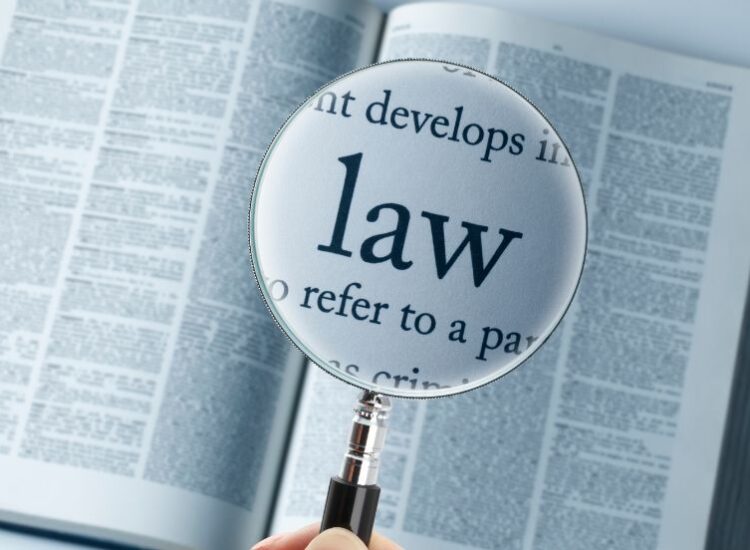Exploring the Fundamentals of International Trade Law
Maritime admiralty law, commonly known as admiralty law, governs legal issues that arise on navigable waters. This specialized area of law addresses matters related to ships, shipping, marine navigation, oceanic commerce, and the rights and obligations of seafarers. Steeped in centuries-old traditions and practices, maritime admiralty law plays a vital role in managing the complexities of international trade and resolving disputes on the high seas.
Toc
This comprehensive guide delves into the core principles of maritime admiralty law, its historical roots, and its relevance in today’s world. We’ll examine how it shapes modern maritime activities and impacts the individuals and organizations at the heart of the seafaring industry.

The Foundations of Maritime Admiralty Law
Historical Development of Maritime Admiralty Law
Maritime admiralty law, also known as maritime law, has its roots in the earliest days of seafaring civilizations. Its origins can be traced back to the maritime codes established by ancient societies such as the Rhodians, Greeks, and Romans, which sought to regulate shipping practices and resolve disputes arising from marine trade. Among these, the Rhodian Sea Laws stand out as one of the most significant early contributions to maritime legislation. Believed to have been developed around 900 BCE, these laws addressed critical issues such as ship damage, cargo disputes, and the responsibilities of shipowners and merchants, setting important precedents for future legal frameworks.
The Romans further refined maritime law, incorporating elements of the Rhodian Sea Laws into their own legal system, which became known as the Lex Rhodia. This integration solidified the foundation for a cohesive and systematic approach to maritime governance. During the Middle Ages, maritime laws gained even greater prominence with the introduction of comprehensive codes such as the Rolls of Oleron, which emerged in the 12th century. Widely adopted across Europe, the Rolls of Oleron provided detailed provisions for the fair treatment of sailors, shipowners, and merchants, while addressing matters such as ship collisions, payment of wages, and dispute resolution. These laws became instrumental in shaping the principles of modern admiralty law.
As global trade expanded during the Age of Exploration, the scope of maritime admiralty law evolved to accommodate the increased complexity of international commerce. New maritime codes were developed to regulate interactions between nations and establish uniform guidelines for shipping practices. Today, maritime admiralty law continues to adapt to the demands of a globalized world, addressing modern challenges such as environmental protection, piracy, and the regulation of shipping lanes.
Key Principles of Maritime Admiralty Law
Maritime admiralty law is built on several key principles designed to ensure fairness, accountability, and efficiency in maritime activities. These principles provide a legal framework for governing interactions on the high seas and resolving disputes in a manner that promotes international cooperation.
One of the fundamental principles of maritime admiralty law is the “law of the flag.” This principle dictates that the laws of a ship’s home country apply to activities aboard that vessel, regardless of where the ship is operating. For example, a ship registered in the United States must abide by U.S. laws, even if it is sailing in international waters. This principle ensures consistency and clarity in the legal jurisdiction governing a vessel’s operations.
Another important concept is general average, a principle that governs the equitable distribution of losses incurred during a voyage. If a ship’s cargo must be deliberately sacrificed to save the vessel and the remaining cargo in an emergency, the costs are shared proportionally among all parties with a financial interest in the voyage. This principle encourages fair treatment among shipowners, cargo owners, and insurers, reducing the risk of disputes in times of crisis.
Salvage rights are another cornerstone of maritime admiralty law. These rights acknowledge that individuals or entities that recover another party’s ship or cargo at sea are entitled to compensation for their efforts. Salvage law aims to incentivize assistance in maritime emergencies while ensuring that salvors are fairly rewarded for their work. The compensation is often determined based on factors such as the value of the recovered property, the level of risk involved, and the skill required to complete the salvage operation.
Additionally, modern maritime law incorporates principles related to environmental protection and sustainability. Regulations now address issues such as pollution from ships, the disposal of hazardous materials, and the preservation of marine ecosystems. These contemporary developments highlight the evolving nature of admiralty law as it strives to balance the demands of commerce with the need to protect the world’s oceans and seas.
1. https://dalatfarmer.vn/mmoga-understanding-maritime-law-in-houston/
2. https://dalatfarmer.vn/mmoga-navigating-maritime-regulations-a-practical-overview/
3. https://dalatfarmer.vn/mmoga-understanding-jordan-maxwell-and-admiralty-law/
4. https://dalatfarmer.vn/mmoga-foundational-concepts-in-admiralty-and-maritime-law/
5. https://dalatfarmer.vn/mmoga-comprehensive-guide-to-maritime-law-firms/
Together, these principles form the backbone of maritime admiralty law, ensuring that marine activities are conducted with fairness, accountability, and respect for international standards. By fostering cooperation between nations, these laws play a vital role in maintaining the smooth operation of global shipping and trade.
Modern Applications of Maritime Admiralty Law

International Trade and Shipping
Maritime admiralty law plays a critical role in facilitating international trade, which is vital for the movement of goods between countries and the global economy as a whole. It provides the legal framework for regulating shipping contracts, cargo claims, and the liabilities of shipping companies, ensuring that transactions and operations are conducted smoothly and fairly. For example, when disputes arise over damaged cargo, delayed shipments, or breaches of shipping agreements, maritime lawyers rely on these laws to resolve conflicts, protect the interests of all parties involved, and minimize disruptions to trade.
In addition to resolving disputes, maritime admiralty law establishes essential protocols for ship registration, certifying vessels’ eligibility to operate under specific flags and jurisdictions. It also ensures compliance with international safety and environmental standards, safeguarding both the marine environment and those who depend on it for their livelihoods. The United Nations Convention on the Law of the Sea (UNCLOS) is one such agreement that offers overarching guidelines for the use of the seas and oceans, addressing trade, navigation, maritime boundaries, and resource management. UNCLOS ensures that countries and shipping companies work within a structured legal framework, promoting cooperation and reducing uncertainties in international waters.
Seafarer Rights and Responsibilities
An essential component of maritime admiralty law is addressing the rights and responsibilities of individuals working at sea, such as seafarers, ship captains, and crew members. These laws aim to protect the safety, welfare, and employment rights of those who spend their lives on the water. For example, seafarers are entitled to fair treatment, proper working conditions, and compensation if they are injured while performing their duties aboard vessels. Laws like the Maritime Labour Convention (MLC) outline specific standards for rest hours, medical care, and living conditions, ensuring that seafarers’ well-being is prioritized.
At the same time, maritime admiralty law imposes strict obligations on seafarers to ensure the safety and operational efficiency of their vessels. This includes adhering to international navigation rules, such as avoiding collisions at sea, maintaining the ship’s seaworthiness to prevent accidents, and complying with port regulations upon arrival. Additionally, seafarers must be well-trained and certified for their roles, as the safe and efficient operation of a vessel depends on their skills and adherence to legal standards.
By balancing the rights and responsibilities of seafarers, maritime admiralty law not only protects individuals working at sea but also contributes to the broader safety and sustainability of international shipping operations. This legal framework is essential for maintaining the trust and reliability that underpin global trade and maritime activities.
Maritime Disputes and Jurisdiction

Resolving Maritime Disputes
Maritime disputes are a complex and diverse category of legal conflicts, arising from various activities conducted on the seas and oceans. These disputes can encompass issues such as cargo damage claims, collisions between vessels, salvage operations, environmental violations, and contractual disagreements relating to charter parties or shipbuilding projects. Additionally, disputes may also involve crew welfare, compensation, and even disputes over port operations. Maritime admiralty law, one of the oldest branches of law, provides the legal framework for addressing these disputes, drawing on centuries of tradition, domestic regulations, and international principles. This legal framework ensures that maritime issues are resolved systematically and fairly, often with the help of well-defined precedents and specialized expertise.
Many maritime disputes are handled through specialized courts or arbitration processes, both of which are designed to ensure a consistent and efficient application of maritime law. Arbitration, in particular, has gained popularity in this field due to its ability to provide a less formal and faster resolution process, often involving arbitrators with specific expertise in maritime affairs. This is crucial in an industry where prolonged legal disputes can disrupt operations and have serious financial implications.
One of the key challenges in resolving maritime disputes lies in determining jurisdiction—deciding which nation’s laws and courts have the authority to settle the matter. This becomes especially significant when incidents involve vessels registered in different countries, disputes occur in international waters, or the parties involved are from multiple jurisdictions. For example, a collision between a ship registered in Panama and one registered in Greece in the waters of the Indian Ocean could lead to jurisdictional conflicts. Resolving such conflicts often requires a careful examination of treaties, international conventions such as the United Nations Convention on the Law of the Sea (UNCLOS), and maritime law precedents. The process may also involve diplomatic negotiations when issues cannot be easily settled through established legal frameworks.
Another vital element of maritime dispute resolution involves addressing piracy and illegal activities at sea. Modern-day piracy, smuggling, human trafficking, illegal fishing, and unpermitted exploration of marine resources are recurring challenges that maritime law aims to combat. Such illegal activities not only jeopardize the economic interests of nations but also threaten the safety and security of crews, passengers, and cargo on international waterways. Admiralty law enforces stringent penalties for these acts, ensuring accountability and deterrence. Maritime authorities, often in collaboration with international organizations such as the International Maritime Organization (IMO) and regional coalitions, play a significant role in tackling these threats. Their efforts include deploying naval forces, improving ship security measures, and enhancing international coordination to maintain order on the seas.
1. https://dalatfarmer.vn/mmoga-comprehensive-guide-to-maritime-law-firms/
2. https://dalatfarmer.vn/mmoga-foundational-concepts-in-admiralty-and-maritime-law/
3. https://dalatfarmer.vn/mmoga-understanding-maritime-law-in-houston/
4. https://dalatfarmer.vn/mmoga-navigating-maritime-regulations-a-practical-overview/
5. https://dalatfarmer.vn/mmoga-understanding-jordan-maxwell-and-admiralty-law/
The Role of Admiralty Courts
Admiralty courts, also referred to as maritime courts, are specialized judicial bodies uniquely equipped to handle the intricacies of maritime law. These courts are often located in regions with significant maritime trade and activity, ensuring accessibility for parties involved in disputes. Admiralty courts address a wide range of claims, including those related to shipping contracts, maritime insurance disputes, collision liability, salvage rights, cargo claims, and environmental violations. They are also tasked with adjudicating cases involving the wrongful arrest of vessels, disputes over vessel ownership, and matters of crew employment and welfare.
The judges and legal experts presiding over admiralty courts possess highly specialized knowledge of maritime operations and the technical aspects of the industry. This expertise extends to interpreting international agreements and conventions such as UNCLOS, the Hague-Visby Rules, and the Rotterdam Rules, allowing them to navigate complex legal frameworks with precision. Their ability to analyze highly technical evidence, such as ship logs, navigation data, and expert testimonies from marine engineers, adds to the courts’ effectiveness in resolving disputes fairly and accurately.
Admiralty courts not only resolve individual disputes but also play a pivotal role in shaping maritime law on a global scale. By ruling on nuanced cases, they establish legal precedents that guide future disputes and contribute to the consistent interpretation of maritime law across jurisdictions. For example, a court’s decision on the liability for environmental damage caused by an oil spill may influence how similar cases are handled elsewhere, fostering greater accountability and environmental protection within the industry.
In addition to their role in dispute resolution, admiralty courts are actively involved in ensuring compliance with maritime regulations. They provide remedies for violations, impose penalties on parties that breach laws, and oversee the enforcement of international conventions. This dual responsibility of resolving disputes and enforcing regulations makes admiralty courts indispensable for maintaining order and fairness in the maritime sector.
Furthermore, admiralty courts support the growth and stability of global trade by providing clarity and predictability to maritime operators. Their ability to enforce legal decisions and uphold the rule of law gives businesses, shipowners, and other stakeholders the confidence to engage in international commerce. In an industry as vast and interconnected as shipping, this stability is essential for fostering cooperation and ensuring the smooth functioning of maritime trade, which remains the backbone of the global economy.
By addressing disputes, setting legal benchmarks, and upholding maritime regulations, admiralty courts ensure that the maritime sector continues to operate efficiently while adapting to evolving challenges. Whether resolving complex jurisdictional issues, combating illegal activities, or promoting compliance with international treaties, these courts play a crucial role in safeguarding the integrity and future of maritime activities worldwide.
Why Maritime Admiralty Law Is Crucial
Maritime admiralty law is a critical component of global commerce and governance, providing a consistent legal framework that ensures maritime activities operate smoothly and equitably across international waters. Rooted in centuries of tradition, it governs everything from shipping contracts and insurance to vessel safety and the resolution of disputes. This legal system helps maintain order in an industry that forms the backbone of international trade, ensuring that goods and resources are transported efficiently and fairly across the globe.
In addition to regulating day-to-day operations, maritime admiralty law addresses emerging challenges, such as environmental sustainability and technological advancements in shipping. With the growing focus on reducing carbon emissions and protecting marine ecosystems, the law is evolving to support green shipping initiatives and hold parties accountable for environmental damage. Similarly, as technological innovations like autonomous vessels and advanced navigation systems reshape the industry, maritime law is adapting to address new legal and ethical considerations.
Whether it’s navigating complex international trade disputes, protecting the rights and welfare of seafarers, or enforcing safety and environmental standards, maritime admiralty law plays a vital role in shaping the future of the maritime industry. By understanding its principles and applications, stakeholders in shipping, trade, and travel can ensure compliance, build stronger partnerships, and contribute to the continued success of this indispensable sector. The importance of maritime law cannot be overstated, as it underpins one of the most essential and interconnected industries driving the global economy.










